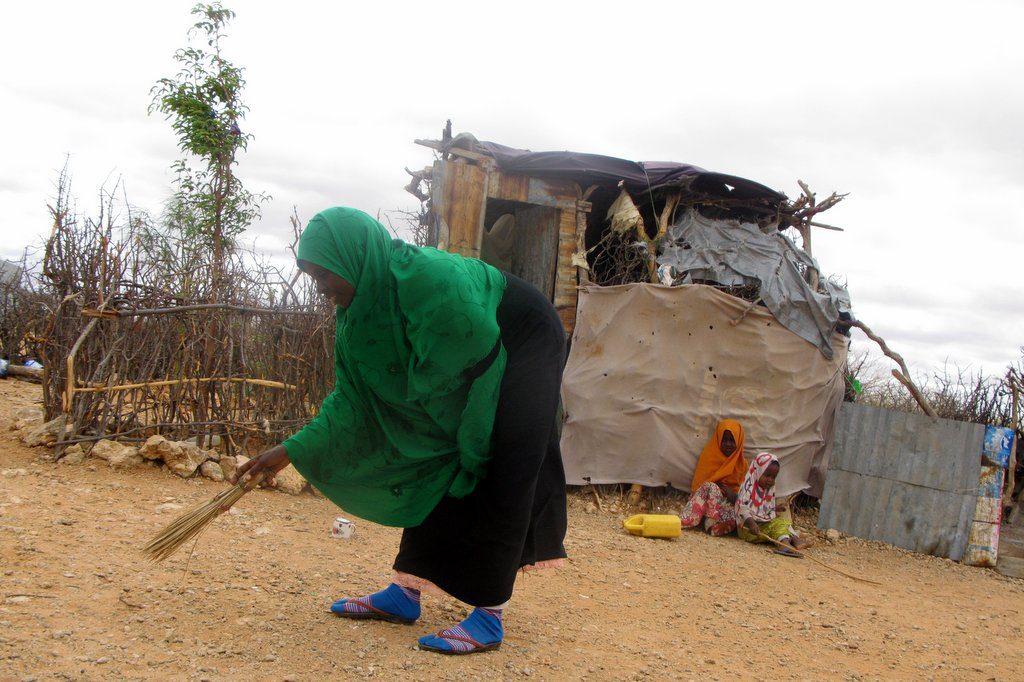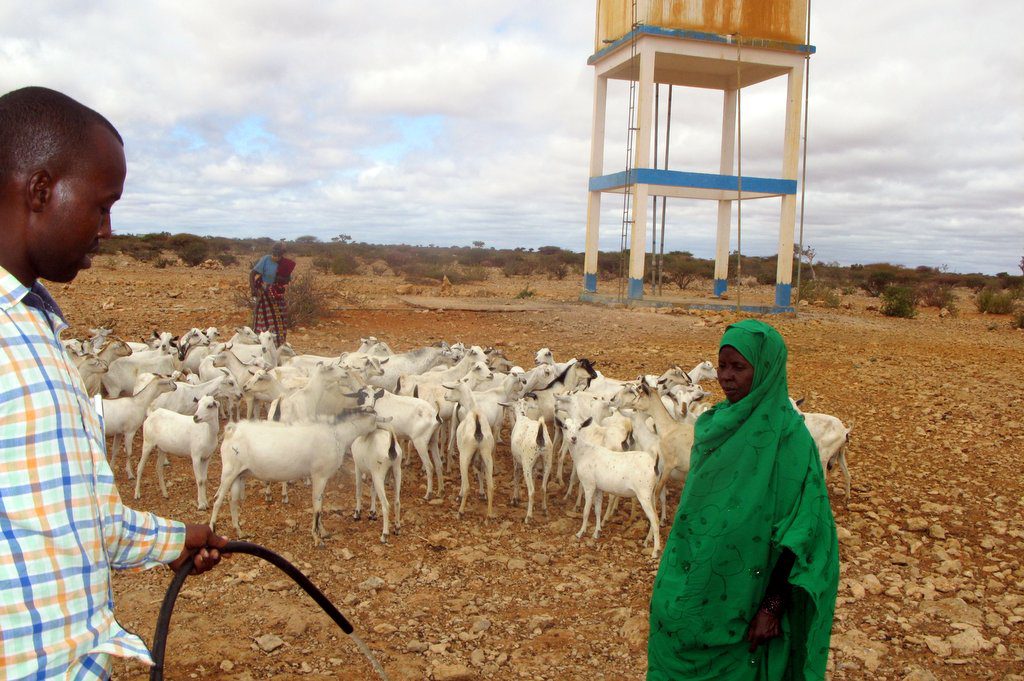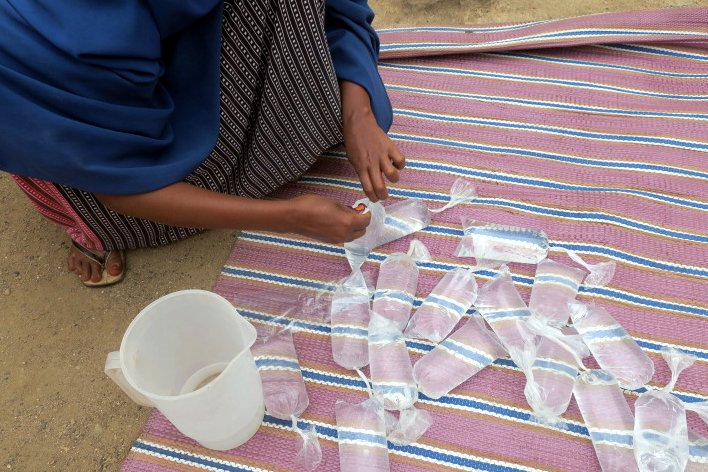Bakdhaad Abdi, (not her real name) a Somali mother, fills her blue jerrycan with water at a water point recently rehabilitated by the International Committee of the Red Cross (ICRC). The restored pump has allowed her to open a novel business: selling plastic bags full of water to truck drivers on a busy road in western Somalia.
“I make $1 a day. I know it is not that much but it means a lot to me. I use this small amount to meet the needs of my two kids,” said Bakdhaad, a 38-year-old who is her family’s main breadwinner.

Bakhdaad cleans her compound with her two kids in the background in Qoqob village, Dusamareb, Somalia. She now works in selling water to truck drivers in the busy Dusamareb-Guriel highway. ©ICRC/Miraj Mohamud
Three kilometers vs. 200 metres
Bakdhaad walks 200 meters to the water point to fetch water for her family and business. She passes by a kiosk to buy charcoal then heads home, where she pours water in a local hand-made pot to heat the water. She lets the water cool for 10 minutes and then pours it into plastic bags.
She then walks three kilometres with a cooler full of bags of water to reach the main road. There she stands under the unforgiving sun waiting for truck drivers to pass by on the Dusamareb-Guriel highway.
“I sell them at 2,000 Somali shillings each and sell almost 20 a day, which comes to about $2. It is enough for me as it can take care of my two kids,” she says.
From the tiny opening of her hut in Qoqob village where Bakdhaad lives, one can see a caravan of camels and donkeys racing past, toward the water point. Dusamareb town is known for its pastoralist inhabitants. The town has just a few buildings with patches of open prayer grounds where herders converge and pray for rain during the dry season.
In 2014, the ICRC rehabilitated the water source for the village of Qoqob, assisting the nearly 10,000 people living there. The borehole is managed by the community.
According to Fernando Resta, who coordinates water projects for the ICRC in Somalia, water is an urgent concern for herders given the harsh environment they live in.
“We realized the capacity for the tank was not enough for the pastoral community and the animals who rely on this borehole. That’s why we had to put a tank that can hold a larger volume of water,” explains Fernando.

Fernando Resta who coordinates water projects for the ICRC Somalia says water is an urgent concern for herders given the harsh environment they live in. ©ICRC/Miraj Mohamud
The conflict in Somalia has lasted more than two decades, and old water points have been left in a state of disrepair or ruin as a result of age and neglect. Most of the community here depends solely on livestock as a means of sustenance, unlike Bakhdaad who chose to try a different field.
Bakhdaad fled Mogadishu after the civil war in 1992 and moved to Dusamareb. Her husband was the backbone of the family before he became seriously ill two years ago, forcing Bakhdaad to rise up and take care of the family.
“I used to be a tea girl. I would sell tea to local herders but later abandoned it after I realized it doesn’t pay well,” she said.


